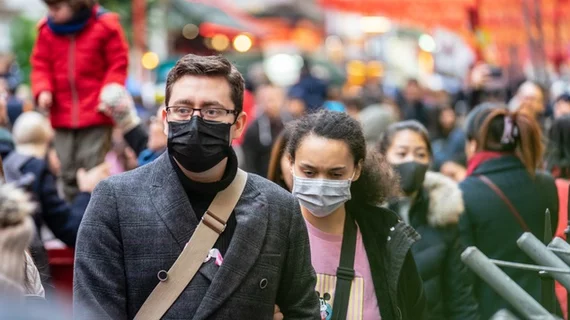Teleradiology firm launches ‘first of its kind’ coronavirus screening program
A global teleradiology firm recently launched a new screening program to help individuals pinpoint the presence of COVID-19. And it’s considering eventually deploying futuristic x-ray scanners at border checkpoints to help control further spread of the disease.
USARad revealed its coronavirus strategy in a Wednesday announcement, noting that it’s mobilizing a network of chest CT-trained rads to diagnose and consult patients on the virus. They’ll do so in tandem with pulmonologists, infectious disease experts and other specialists.
The Fort Lauderdale, Florida-based company revealed last month that it was partnering with startup Nanox on a deal to distribute 3,000 futuristic, low-cost imaging scanners in the states. USARad noted that the partnership includes collaborating with health authorities across the globe to potentially deploy thousands more at ports, border waypoints and community medical centers. This could allow for “efficient and timely preventive screening” for future outbreaks of coronavirus, or similar pandemics, according to the announcement.
“We are doing everything possible to reduce panic, bringing the peace of mind to millions of patients worldwide,” Michael Yuz, MD, radiologist, founder and CEO of the firm, said in a statement.
Siemens-backed USARad has already provided multispecialty consultations in 100-plus countries for numerous other medical conditions. Now it’s moving this work into the COVID-19 space, pointing to recent research which found chest CT yields higher sensitivity than lab testing. The American College of Radiology, meanwhile, cautioned clinicians this week to only use CT “sparingly” on such patients, and never as a first-line screening tool.
USARad’s program will operate in tandem with Medical Diagnostic Web—a blockchain-powered radiologist marketplace that connects hundreds of rads to provide diagnoses. The partners will also use artificial intelligence as an aid to assist radiologists “as imaging quantities mount.”
“Radiology specialists are available around the clock to help diagnose or exclude COVID-19,” the partners said in their announcement, adding that images can be uploaded via an “intuitive online service” for quick interpretation. “The team of multiple other specialists and subspecialists is also available on stand-by,” they added.
Nanox’s low-cost scanners are still awaiting approval from the U.S. Food and Drug Administration, the partners noted. Pending that approval, they’ll look to dispatch Nanox.Arc machines to “high-risk” areas to provide immediate screening capabilities, according to the announcement.

